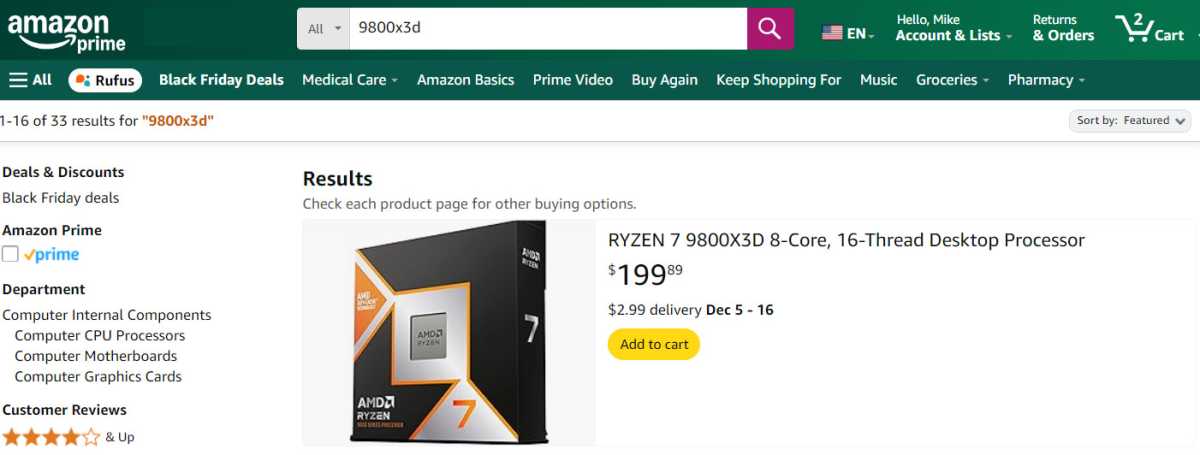
 Image: Adam Patrick Murray / Foundry
Image: Adam Patrick Murray / Foundry
AMD’s Ryzen X3D processors are some of the hottest on the market, and the newest and hottest of all is the Ryzen 7 9800X3D. The first 9000-series chip with extra V-cache for gaming desktops was a smash hit right out of the gate, selling out almost immediately — so if you’re hunting for one this holiday season, beware of deals that are too good to be true.
The 9800X3D has a retail price of $479, if you can actually find one in a store or an online shop that still has stock. Sellers on eBay are easily getting $600+ for a quick flip, and that seems likely to persist for the rest of the year and into next year.
But a few shoppers have spotted the 9800X3D on Amazon for an unbelievable price of $199.99. I see at least one as I write this article:

Doubt.
Amazon
That’s literally unbelievable, for a good reason. I can’t actually point to any individual listing and accuse it of fraud — there’s a little lawyer on my right shoulder whispering into my ear, and a little copy editor on my left — but I can tell you that WePC says “these 9800X3D listings seem botted” (via Tom’s Hardware), pointing out that they don’t list AMD as the official manufacturer, which is generally required in legit Amazon listings. Several of them seem to be popping in and out, so I’m guessing Amazon is actively fighting fakes (as it often does for in-demand items).
The 9800X3D is an amazing processor that’s worth every penny of its retail price. But every penny of $700? Probably not. Remember, an AM5 motherboard can also handle a far more affordable processor like the Ryzen 5 7600X (currently on sale), and you can wait to upgrade later.
But as with all things online, if a deal seems too good to be true, it almost certainly is. Take this recent group of fake “Black Friday” stores trying to steal credit card info, for example. This seems like it’s going to be an especially nasty year for threats aimed at holiday shoppers.
Author: Michael Crider, Staff Writer, PCWorld

Michael is a 10-year veteran of technology journalism, covering everything from Apple to ZTE. On PCWorld he’s the resident keyboard nut, always using a new one for a review and building a new mechanical board or expanding his desktop “battlestation” in his off hours. Michael’s previous bylines include Android Police, Digital Trends, Wired, Lifehacker, and How-To Geek, and he’s covered events like CES and Mobile World Congress live. Michael lives in Pennsylvania where he’s always looking forward to his next kayaking trip.
Recent stories by Michael Crider:
Hackers are using Facebook ads to spread fake Chrome password managersGmail might start offering ‘dummy’ email addresses soonHackers can wirelessly watch your display by HDMI radiation



